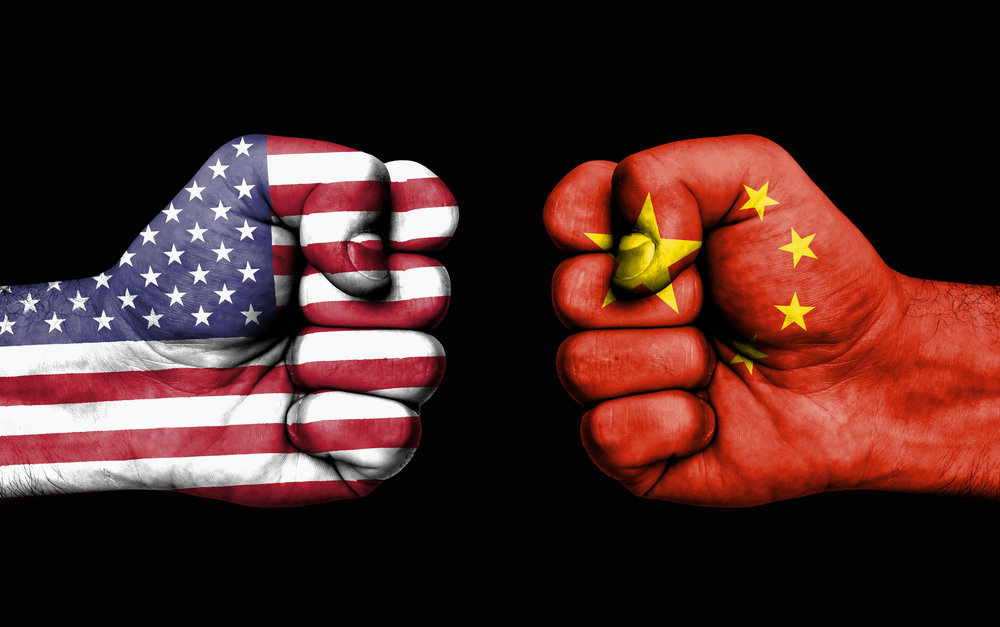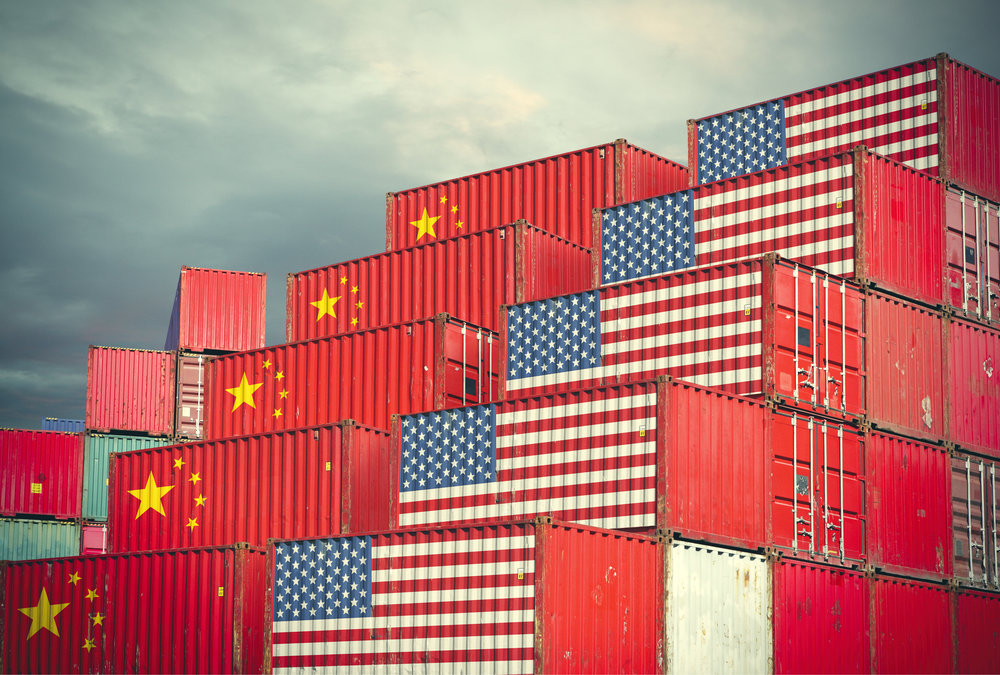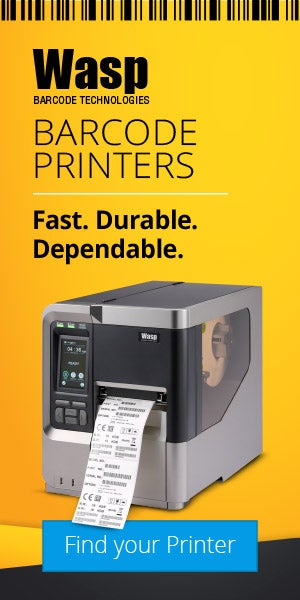Wasp Barcode Technologies: The Barcode Solution People
Why New Tariffs Shouldn't Affect Your Supply Chain
 The talk of the business world so far in 2018 has been the introduction of tariffs on a wide range of goods, from solar panels to washing machines to steel and aluminum.
The latest trade announcement to come from the White House involves the possibility of tariffs on Chinese goods which hasn’t gone into effect due to fear of retaliation by China that would limit the tariffs’ effectiveness.
The talk of the business world so far in 2018 has been the introduction of tariffs on a wide range of goods, from solar panels to washing machines to steel and aluminum.
The latest trade announcement to come from the White House involves the possibility of tariffs on Chinese goods which hasn’t gone into effect due to fear of retaliation by China that would limit the tariffs’ effectiveness.
Those in supply chain management have kept a close eye on news of the tariffs, which can greatly affect the price and availability of important materials used in products like cars and televisions.
Let’s discuss how tariffs effect those who work in supply chain, and then examine why these new tariffs shouldn’t affect business plans going forward.
Possible Effects From Tariffs
If you’re a manufacturer and you source your steel or aluminum from outside the United States, you’re going to see prices for your materials go up. (And about a third of the steel used in the U.S. last year was imported, so it’s not unlikely.)
[Tweet "About a third of the steel used in the U.S. last year was imported."]
This may end up being the same for any company that uses imported goods in the future, particularly if those goods come from China.
And that’s a problem, because when things cost more to make, your profits go down. Even in the search for finding a new supplier not subject to tariffs, your company must spend time and money in procuring a new source.
Then a ripple effect could end up touching related industries such as automobiles, construction, processed foods, financial and recreational services, and much more.

Even the uncertainty of whether some tariffs will go into effect or not can take a financial toll, as businesses refrain from making key changes or upgrades to their model for fear that expected revenue or contracts may disappear quickly.
But if you’re a small business owner, manufacturer, or other link in the supply chain, your worries about the effects of tariffs may be distracting you from a bigger issue.
Lacking In Inventory and Asset Management
Some involved in supply chain management and business cheered when these tariffs were announced. Their products would no longer have to compete with cheaper foreign-made products at prices they couldn’t afford.
But as Rosemary Coates writes in Supply Chain Management Review, tariffs may only encourage American businesses to rest on their laurels:
...American manufacturers of the same or similar products don’t have to compete so aggressively for business. They can charge higher prices with less competition, without doing a thing to improve their own operational efficiency…
Tariffs create a false sense of well-being among U.S. manufacturers. Instead of improving their processes and becoming more efficient in order to compete, they are handed a license to stay fat and happy. This is not the image we want for American manufacturing.
If you don’t think this is true, you haven’t paid enough attention to the way businesses have been approaching inventory and asset management over the last few years.
According to the Wasp Barcode State of Small Business Report, 43 percent of small businesses don’t track their inventory or use a manual process to do so; ditto 55 percent of small businesses for tracking fixed assets.
In a world where so much of our businesses practices and even our personal lives (from the way we order a cab to how we communicate with our closest friends) have been radically altered by technology, it’s shocking that in this crucial aspect of business operations, so many companies are content to count their inventory by hand, or by using error-prone spreadsheets.

Look To Upgrade Operations Regardless Of Politics
Oftentimes, business owners look forward to the election of certain officials or politicians as the answer to their problems. Maybe their taxes will go down, or maybe laws will be enacted to help make their industry more competitive globally.
And while lower taxes or helpful legislation are appealing outcomes, they rarely have the kind of outstanding effect on everyday operations that investment in your company actually yields.
What are you using to track your inventory? Do you have a system that depends on Excel or manual hand counts to decide how much stock you should be carrying, or estimating in your head when you’ll need to resupply for the holidays? Or could you be using ever-improving barcode scanners to update your stock count on the fly? Could you be designing, printing, and applying your own custom barcode labels to improve your data collection methods? Could this all be part of an automated inventory management system that reduces the carrying cost of inventory while making everything more efficient and cost-effective in the long-run?
Where are you keeping your inventory records? Is everything on a local computer, or could you switch to cloud computing, so you can securely access all your company data from any location?
And what about your fixed assets? Are you simply buying heavy machinery and costly investments like vehicles and computers, and letting your accountant depreciate and then dispose of them when their time is up? Are you conducting proper maintenance to extend their useful lives? Are you handing in accurate ledgers to the IRS to account for your spending? Or could you simplify all these processes by investing in an automated system, similarly powered by flexible yet humble barcode technology?
The Bottom Line
For years, issues like ghost assets, employee theft, and overstocking have haunted small businesses, helping to push them over the thin line between success and failure. For the most part, tariffs will not do enough to keep businesses that aren’t doing their due diligence solvent anyway.
To be competitive on the world stage, American businesses will need to upgrade their systems and operations to meet increasingly important standards of transparency, accountability, and efficiency. No tariff on Chinese goods can make that happen—only the adoption of up-to-date technology can. So take your eye off the front page for the moment, and instead focus on what’s presently hurting, and what can presently help, your business today.

 Even the uncertainty of whether some tariffs will go into effect or not can take a financial toll, as businesses refrain from making key changes or upgrades to their model for fear that expected revenue or contracts may disappear quickly.
But if you’re a small business owner, manufacturer, or other link in the supply chain, your worries about the effects of tariffs may be distracting you from a bigger issue.
Even the uncertainty of whether some tariffs will go into effect or not can take a financial toll, as businesses refrain from making key changes or upgrades to their model for fear that expected revenue or contracts may disappear quickly.
But if you’re a small business owner, manufacturer, or other link in the supply chain, your worries about the effects of tariffs may be distracting you from a bigger issue.



